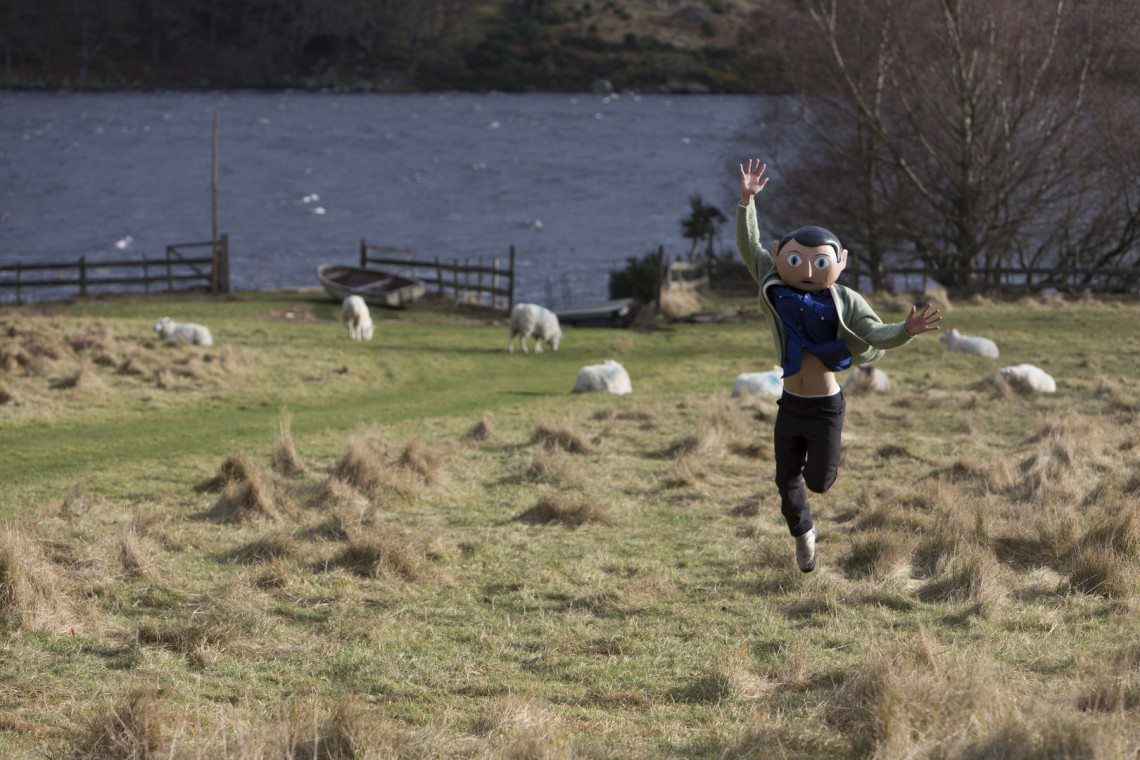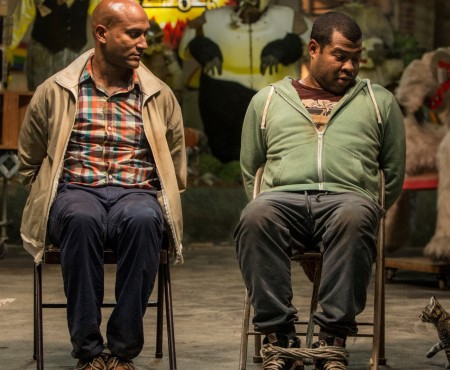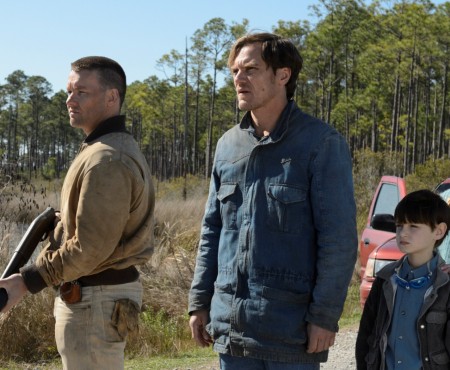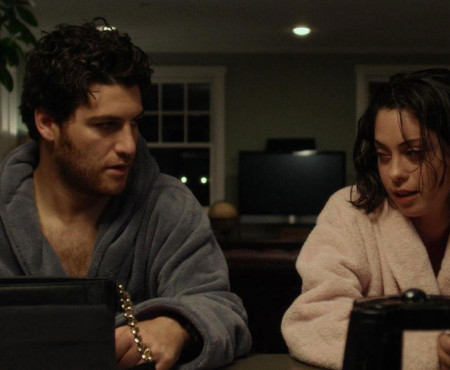The relationship between creativity and mental illness is a topic that has long been discussed in the modern era, with many suggesting that some of the most unstable artists create some of the greatest work. While that is certainly a more complex topic than can be discussed in this space, it’s the central thesis at the heart of Frank, the tragic-comedy hit of Sundance. A strange and unique odyssey of creative souls wandering in search of their creative flow, the film has many charming and affecting moments, but ultimately amounts to an uneven and tonally confused disappointment that is less than the sum of its parts.
The story probably sounds stranger on paper than it does in the actual film: an aspiring musician in London named John (Domhall Gleeson) ends up roped into helping a strange band full of oddballs record an album, led by the enigmatic Frank (Michael Fassbender), a man who wears a giant papier-mâché head to hide his true face. While Frank is warm and welcoming to John, the rest of the band doesn’t trust him, doubting his motives in replacing their former keyboardist. The strange creative process they go through is contrasted humorously with John’s constant conflict with Clara (Maggie Gyllenhaal) and the rest of the band as they fruitlessly attempt to decide on a sound for the album to record.
Problems arise with the film’s inconsistent tone, shifting from overly twee and precious to more traditionally off-centered indie film humor, only to experience a huge tonal whiplash once the setting shifts to a botched concert at the SXSW Music Festival. More often than not, the film wants to have its cake and eat it, too, wanting to aim for making you laugh and cry in the same scene, but it never comes together as a cohesive whole. The script’s treatment of Clara, who, while arguably unstable, is a bit unfair, rarely affording her character a chance to explore what makes her so hostile towards others who aren’t Frank. Instead, she’s relegated to the “crazy bitch” stereotype that is more often than not a truly regressive depiction of someone who clearly has more to her than a label.
Indeed, this is a constant problem in an otherwise charming film. Each character is so broadly painted that they become little more than oddball caricatures, including John, who rarely grows past the struggling artist striving to prove his mettle. Naturally, Frank is the most complex and interesting, only helped along by an affecting and nuanced turn from Michael Fassbender. Fassbender is quickly becoming one of the most exciting actors of his generation, delivering a unique and fascinating performance in nearly every film he stars in. The vulnerable fear and love for creation he displays here, even with his face obscured for 90% of the film, is remarkable, relying on an extremely physical performance to convey a broad range of hilarious and volatile emotion. That range comes full circle in the end when his true face is revealed, tearing down his one defense from the outside world and turning him into a nearly hollow shell of the jovial artist that came before. It’s a striking transition that works far better than the tonal shift of the film itself.
Ultimately, Frank is the kind of film that is going to divide audiences, and for good reason. I find myself more stuck in the middle between the parts that work and the whole that ultimately doesn’t. If nothing else, it’s a bit disconcerting to see a film this unique constantly take two steps forward and one step back. But perhaps that’s reflective of the characters themselves, ever striving towards creative nirvana, only to be defeated by themselves.




















